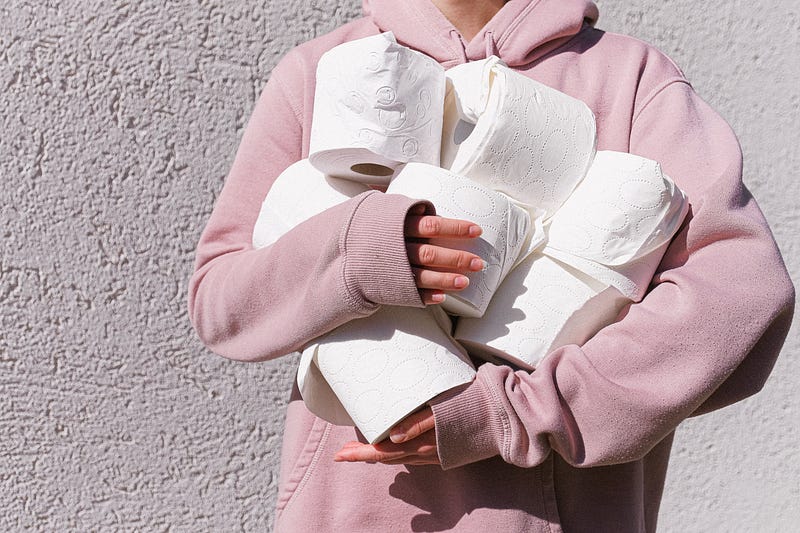The Science Behind Coffee and Its Urgent Effects on the Body
Written on
Chapter 1: Understanding Coffee's Impact on Digestion
Do you find yourself rushing to the restroom after your morning coffee? You're not alone. For countless individuals, starting the day with a cup of coffee is essential. Yet, before this beloved beverage can energize us, it seems to kick our intestines into high gear, prompting an urgent need to visit the bathroom. What causes this phenomenon?

[Photo: Chevanon Photography, Pexels]
Many coffee enthusiasts are familiar with that immediate urge to head to the toilet after the first sip. Is it the coffee itself, the caffeine content, or perhaps even the temperature of the drink? Despite being a staple in human culture for centuries, our understanding of how coffee affects our bodies remains limited.
Coffee significantly boosts the movement of the colon.
To grasp coffee's influence on our system, we first need to understand the colon's role. It is the longest part of the large intestine, typically around 1.5 meters long. Its main duties include storing and distributing water, nutrients, and minerals. Furthermore, it plays a crucial role in the formation and storage of feces.
Research indicates that coffee activates and enhances colon activity just moments after consumption. A notable study conducted in 1998 involved twelve participants, each equipped with a probe in their colon to monitor its function. They were given traditional coffee, decaf coffee, water, and meals in varying orders.

[Photo: Lukas, Pexels]
The findings revealed that both types of coffee led to more significant colon contractions and heightened stimulation. Interestingly, caffeinated coffee proved to be 23% more effective in promoting colon activity than its decaffeinated counterpart. Notably, the research concluded that coffee does not directly affect the colon.
A recent study from the Royal Hallamshire Hospital highlighted that coffee encourages the release of gastrin, a hormone primarily produced in the stomach and the early part of the small intestine. This hormone plays a vital role in regulating digestion and the digestive system's functionality.
It was observed that gastrin stimulates the stomach to produce increased gastric juices, which significantly impacts colon motility, leading to heightened intestinal contractions. This is the moment when our body signals a need for a bowel movement. So, what is it about coffee that triggers this response?

[Photo: Anna Shvets, Pexels]
The stimulating effect of coffee on the colon can be attributed to melanoidins—high molecular weight polymers found in various foods, including barley malt, baked goods, and coffee. These compounds are rich in dietary fiber, which supports digestion and helps prevent constipation. They are formed during the roasting process of coffee.
However, it’s essential to recognize that individual responses to coffee can vary greatly based on physical and chemical factors. This means not everyone will experience the same effects from coffee.
In a 2009 study, researchers focused on a group of men who fasted overnight. They were given either a light meal, coffee, or both upon waking. The study concluded that coffee notably expedited the sensation of needing to use the restroom.
"Some compounds in coffee interact with opioid receptors in the gastrointestinal tract, influencing intestinal motility," remarked Dr. Kyle Staller, a professor at Massachusetts General Hospital, in an interview with CNN.
Chapter 2: Additional Insights into Coffee's Effects
The first video titled "Why Does Coffee Make You Poop? | Christine Lee, MD" delves into the science behind coffee's effects on bowel movements, explaining the physiological processes involved.
The second video, "Why Does Coffee Make You Poop?" explores various factors that contribute to this common experience, providing viewers with a deeper understanding of the relationship between coffee and digestion.
In conclusion, many individuals feel a connection to celebrities or stars, but for some, this relationship can become one-sided and complex.
Thank you for reading to the end of this article! If you found it insightful, I would greatly appreciate your support through claps or even following my work. Thank you!